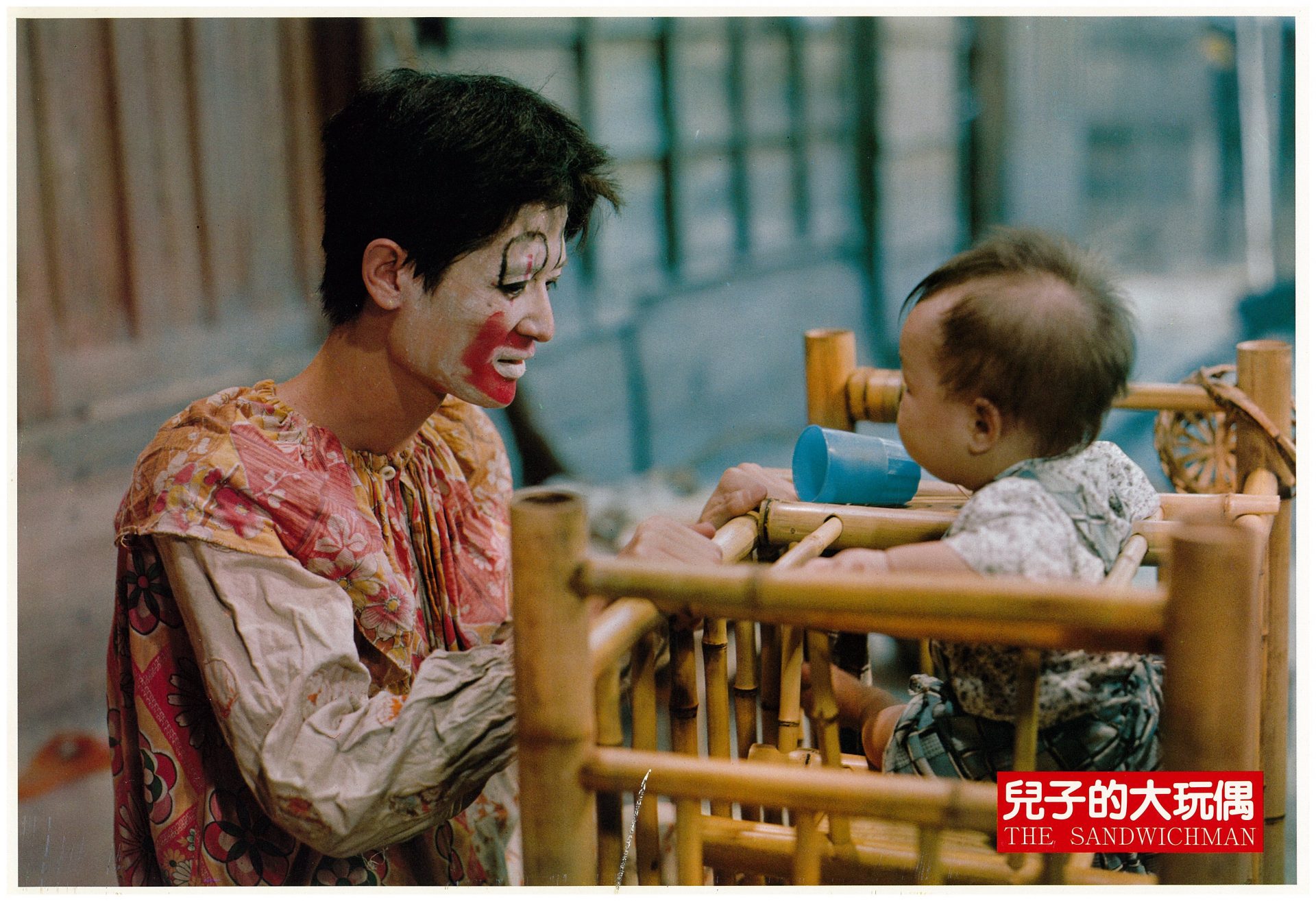In the wake of the rapid economic growth and large-scale industrialisation in the 1960s and 70s, the diminutive island nation of Taiwan was going through something of an identity crisis. Having previously been ruled by regimes as disparate as European colonists, the Qing Empire and Chinese nationalists, the country found itself pulled between China and the USA during the decades-long Cold War.
Fuelled by this sense of disillusionment, many Taiwanese writers and creatives pioneered a new type of art, in which a distinctly Taiwanese voice was brought to the fore. The Sandwich Man is a collection of three vignettes based upon the short stories of one such writer, Huang Chun-Ming, who has proven to be influential in crafting a cultural identity for the country through his life’s work and teachings.
The first and strongest of the three segments is the titular The Sandwich Man from acclaimed Taiwanese director Hsiao-Hsien Hou, in which our eponymous hero is an impoverished husband and father desperately trying to earn enough money to feed his young family. Having learned of the success of sandwich board advertising in Japan, he convinces a local cinema owner to let him dress up in a homemade clown costume and parade around the town, advertising the venue’s upcoming releases.
In a society where dignity and respect matter so much, Qun-Shu’s decision to willingly relinquish both in order to eke out a miserable living are testament not only to the difficult conditions that thousands of Taiwanese found themselves in at the time, but also to his own (and by extension, the nation’s) willpower in surviving the ordeal. The irony, however, is that when his industriousness finally pays off and he receives the promotion that allows him to ditch his humiliating garb, his infant son has become so accustomed to his painted face that he no longer recognises him without the makeup. The parallels between Qun-Shu’s predicament and Taiwan’s own cultural crisis are neatly drawn and despite its optimistic conclusion, the short raises dark questions about poverty, society and national identity.
The second vignette, Vicki’s Hat by Chuang-Hsiang Tseng, focuses on two travelling salesmen who have been tasked with flogging Japanese pressure cookers to rural communities. Lin has a pregnant wife for whom he must earn money to support, while Wang strikes up an unlikely friendship with a young schoolgirl (Vicki) who mysteriously never removes her hat. While the tone of the piece is almost desultory in its direction throughout, there is enough of an undercurrent of foreboding to presage the traumatic end in store for both men. Though not as skilfully handled as The Sandwich Man, Vicki’s Hat takes a blunter approach to confronting issues of inequality and impoverishment in a distinctively Taiwanese setting.
The final short, The Taste of Apples from Jen Wan, is by far the most lighthearted of the three, though again the rich vein of satire that permeates it means that the laughter masks a darker message beneath. When menial labourer Chiang A-Fa is knocked down by the private vehicle of an American Colonel, he and his family are whisked away to a naval hospital that contains luxuries beyond their wildest dreams. Keen to atone for the accident, the Colonel catapults them into a relatively wealthy existence that soon becomes the envy of their friends and colleagues. The only of the stories to contain any semblance of prosperity, the message here seems to be that Taiwan is only visited by affluence when the latter runs the former over with a honking great limousine.
Taken together, this trio of well-crafted and nuanced shorts provide not only an insight into Taiwanese film, but also one of the first cinematic peeks into what constitutes everyday life in a Taiwanese household. As such, the shorts are a vital window into a community that has traditionally been overshadowed by various different interests – including in both a cinematic and a cultural sense – and represents recommended viewing for anyone keen to gain a greater understanding of this corner of the world.
Part of Taiwan Film Festival 2020
